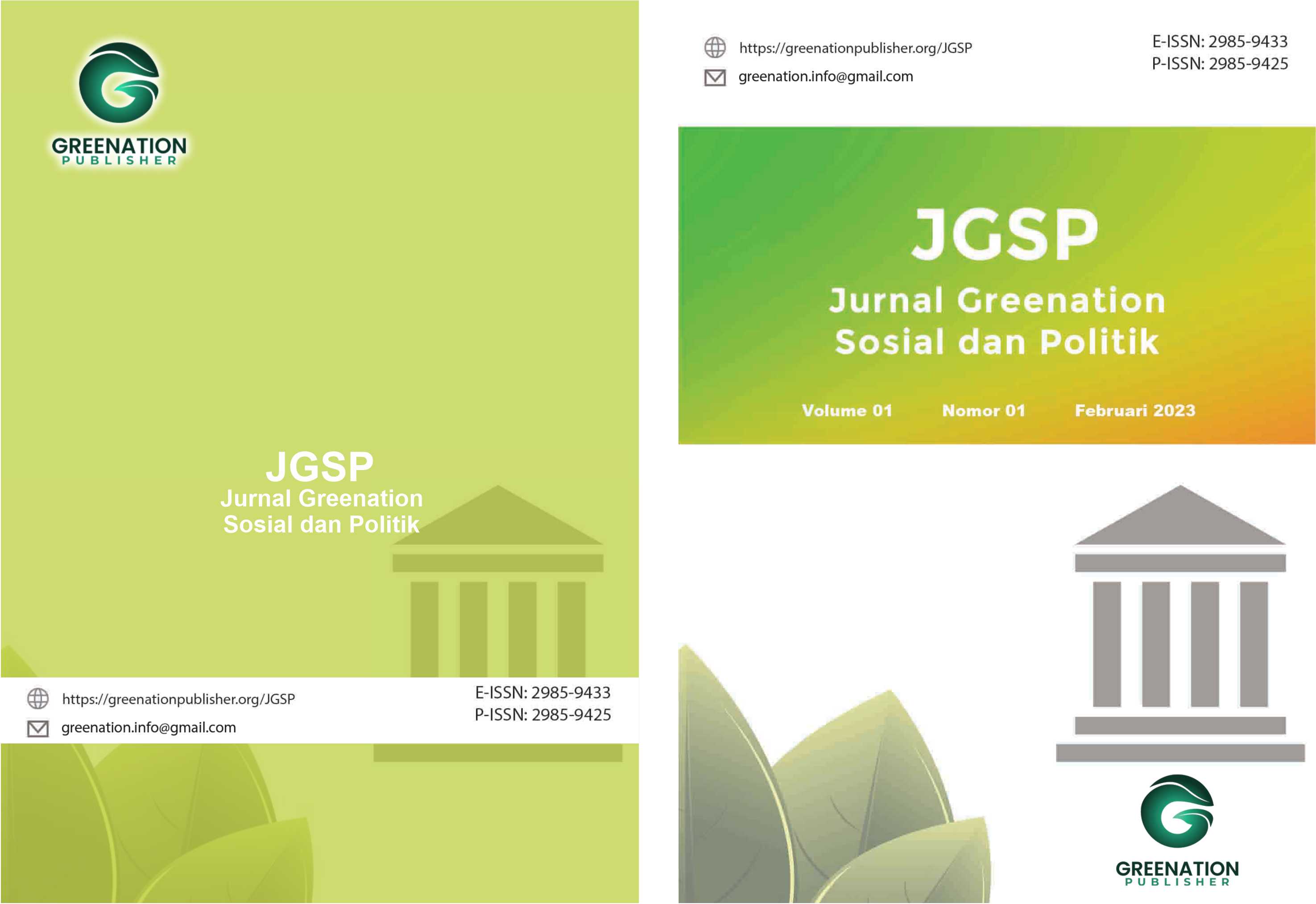Transformation of POLRI's Leadership Style in Managing the Unique Potential of Gen Z Personnel as a Foundation for Building a Positive Image of Traffic Police Accepted by the Public
DOI:
https://doi.org/10.38035/jgsp.v3i3.434Keywords:
Polri leadership, Generation Z, Traffic Police, institutional image, police reformAbstract
The transformation of leadership styles within the Indonesian National Police (Polri) has become a strategic necessity amidst the growing dominance of personnel from Generation Z. This generation brings distinct characteristics from their predecessors, such as openness to technology, a preference for collaborative work patterns, and expectations for participatory and meaningful leadership. Meanwhile, Polri's traditional leadership style remains rooted in hierarchical, one-way command structures, often clashing with the expectations of Gen Z personnel. In the context of Traffic Police (Polantas), the successful management of this generation’s human resources has a direct impact on public perception and the institutional image. This study uses a normative juridical method with a conceptual approach and analysis of the latest regulations, such as Law No. 2 of 2002 on the National Police, Polri Regulation No. 7 of 2022 on the Police Professional Code of Ethics and its Commission, and the Ministry of Administrative and Bureaucratic Reform Regulation No. 6 of 2022 on ASN Performance Management. The findings indicate that an adaptive leadership style grounded in values, technology, and two-way communication can address internal challenges while enhancing the image of Polantas as professional, humanistic, and transparent. Optimizing Gen Z’s potential within Polri’s organizational structure -especially in public service units like Polantas- requires organizational culture transformation, contextual training, and an accountable performance management system. The synergy between internal development and public participation is key to achieving long-term success in this transformation.
References
Aditya, L. R. (2023). ANALISA PELATIHAN DAN PENGEMBANGAN SUMBER DAYA MANUSIA DI KEPOLISIAN RESOR LOMBOK TIMUR. Janaloka, 2(2), 208-229.
Andrie Firmansyah, S. E. (2025). HR 5.0: Transformasi Sumber Daya Manusia di Era AI. Padang: Takaza Innovatix Labs.
Arif, M. (2021). Tugas dan fungsi kepolisian dalam perannya sebagai penegak hukum menurut Undang-Undang Nomor 2 Tahun 2002 tentang kepolisian. Al-Adl: Jurnal Hukum, 13(1), 91-101.
Arson, A. M. (2020). Pengaruh Gaya Kepemimpinan, Pendidikan dan Pelatihan, dan Lingkungan Kerja terhadap Kinerja Anggota Satuan Polisi Pamong Praja di Kabupaten Kotawaringin Timur. Journal of Environment and Management, 1(1), 46-56.
Aulia, Y. M. (2023). KOMUNIKASI DALAM KEPEMIMPINAN TRANSFORMASIONAL. Jurnal Kepemimpinan dan Pengurusan Sekolah, 8(4), 257-265.
Badri, M. (2022). Pribumi digital moderat: Profil kecakapan komunikasi digital generasi z. Jurnal Riset Komunikasi, 5(2), 291-303.
Hanum, G. K. (2024). Kepemimpinan Strategis Dan Kinerja Organisasi: Sebuah Meta-Analisis. Jurnal Review Pendidikan dan Pengajaran (JRPP), 7(1), 158-166.
Heri, E. I. (2019). Tantangan Pengembangan SDM Polri di Era Revolusi Industri 4.0. Jurnal Ilmu Kepolisian, 13(2), 16-16.
Kurniawan, Y. (2025). Kepemimpinan Perwira Muda Akademi Kepolisian di Era Digital Menuju Indonesia Emas 2045. Proceedings of Police Academy Billingual Seminar, 1(1), 15-15.
Laka, L. D. (2024). Pendidikan karakter Gen Z di era digital. Jambi: PT. Sonpedia Publishing Indonesia.
Lumbu, A. P. (2025). Pendidikan Karakter: Teori dan Implementasi Pendidikan Karakter Bagi Gen-Z. Jambi: PT. Sonpedia Publishing Indonesia.
Magfiroh, H. T. (2023). Kepemimpinan adaptif: Sebuah studi literatur. Jurnal of Management and Social Sciences, 1(3), 118-136.
Maharani, A. P. (2025). Kebudayaan Gen Z: Kekuatan Kreativitas di Era Digital. Indonesian Culture and Religion Issues, 2(1), 10-10.
Nahnudin, N. F. (2023). Tipe dan ide kepemimpinan adaptif terhadap solusi konflik organisasi. Tadbir Muwahhid, 7(1), 85-108.
Parengkuan, E. &. (2020). Generation gap (less): Seni menjalin relasi antargenerasi. Jakarta: Gramedia Pustaka Utama.
Patoni, A. &. (2023). Komponen Kepemimpinan Transformasional. JMPI: Jurnal Manajemen, Pendidikan dan Pemikiran Islam, 1(1), 1-11.
Pondalos, T. (2022). KONTROL DIRI DENGAN PERILAKU DISIPLIN POLISI LALU LINTAS DI SATUAN LANTAS KEPOLISIAN RESOR KOTA MANADO. Journal of Syntax Literate, 7(2).
Pujianto, W. E. (2022). Transformasional Leaderships Sebagai Gaya Kepemimpinan Strategis Masa Depan pada Satuan Polisi Sektor. Public Sphere Review, 32-41.
Rimadhani, A. P. (2024). Menghadapi Perubahan Paradigma Kepemimpinan: Strategi Mengelola Generasi Z dan Milenial Yang Berbeda. Journal of Knowledge and Collaboration, 1(2), 60-70.
Wicaksana, S. A. (2025). Psikologi Kepemimpinan. Jakarta: Bumi Aksara.
Downloads
Published
How to Cite
Issue
Section
License
Copyright (c) 2025 Shinta Ayu Pramesti, Joko Setiono, Purwadi Wahyu Anggoro

This work is licensed under a Creative Commons Attribution 4.0 International License.
Hak cipta :
Penulis yang mempublikasikan manuskripnya di jurnal ini menyetujui ketentuan berikut:
- Hak cipta pada setiap artikel adalah milik penulis.
- Penulis mengakui bahwa Jurnal Greenation Sosial dan Politik (JGSP) berhak menjadi yang pertama menerbitkan dengan lisensi Creative Commons Attribution 4.0 International (Attribution 4.0 International CC BY 4.0) .
- Penulis dapat mengirimkan artikel secara terpisah, mengatur distribusi non-eksklusif manuskrip yang telah diterbitkan dalam jurnal ini ke versi lain (misalnya, dikirim ke repositori institusi penulis, publikasi ke dalam buku, dll.), dengan mengakui bahwa manuskrip telah diterbitkan pertama kali di JGSP.
























